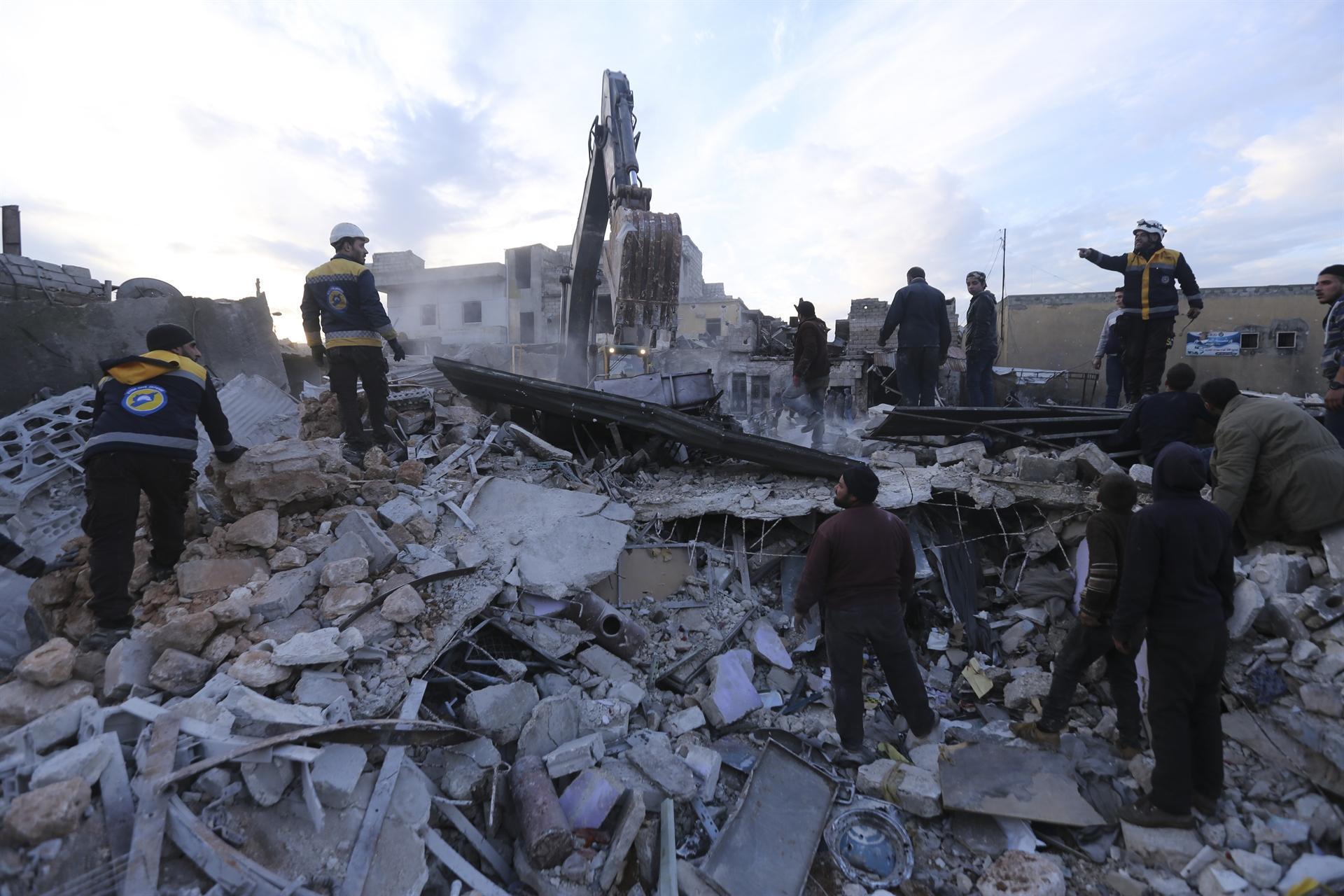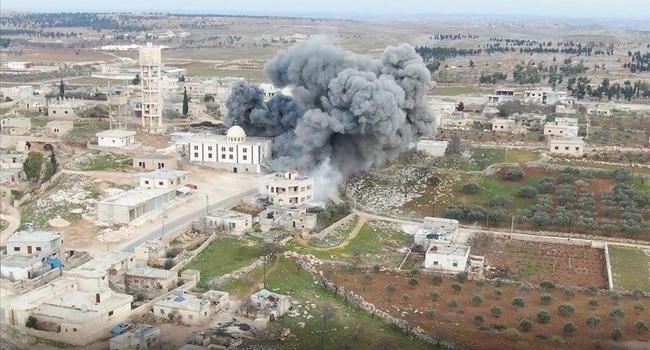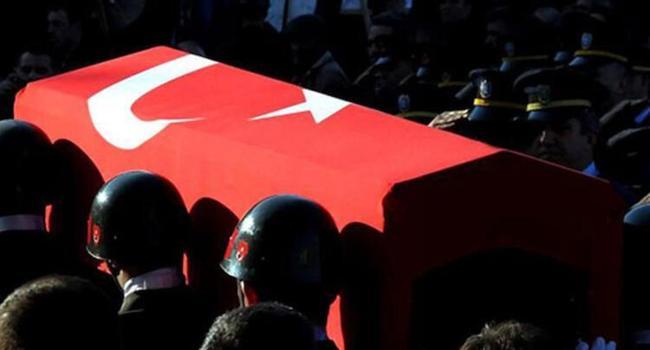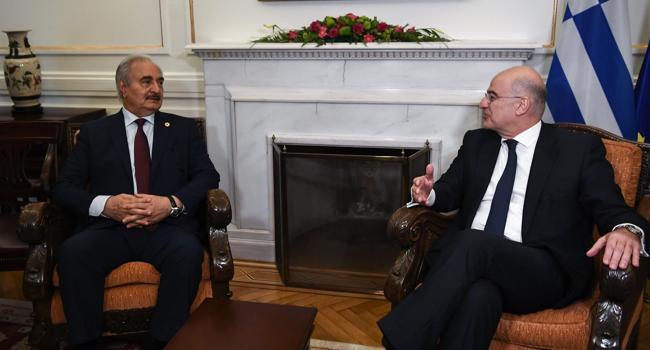Erdoğan slams Syrian regime aggression in Idlib
ANKARA-Anadolu Agency

Emergency services look for survivors after airstrikes in the city of Idlib, Syria, Jan. 15, 2020. (AP Photo)
The Turkish president on Jan. 17 expressed concern on recent developments in the embattled Idlib province in northwestern Syria, saying they were an indication that the Syrian regime did not comply with cease-fire deals initiated by Turkey and Russia.
"[Idlib] is clear proof that the regime does not comply with the steps we have taken regarding the cease-fire," President Recep Tayyip Erdoğan told reporters in Istanbul.
He was referring to a cease-fire that began early Jan. 12, succeeding an oft-violated de-escalation deal reached in September 2018.
Since then, more than 1,300 civilians there have been killed in attacks by the regime and Russian forces as the cease-fire continued to be violated.
Over one million Syrians have moved near the Turkish border due to intense attacks over the last year.
The de-escalation zone is currently home to some four million civilians, including hundreds of thousands displaced in recent years by regime forces from throughout the war-weary country.
Erdoğan also said Turkey would not let a deadly terrorist car bombing in northern Syria "go unanswered" after it killed three Turkish soldiers while conducting road controls in the anti-terror Operation Peace Spring zone.
Haftar not 'trustworthy'
Referring to the situation Libya, where Turkey supports the U.N.-recognized Government of National Accord (GNA) against renegade commander Khalifa Haftar, Erdoğan said Haftar was not "trustworthy."
"They continued to bomb Tripoli yesterday [on Jan. 16]," he said.
Since the ouster of late ruler Muammar Gaddafi in 2011, two seats of power have emerged in Libya: one in eastern Libya supported mainly by Egypt and the United Arab Emirates, and the other in Tripoli, which enjoys the U.N. and international recognition.
On Jan. 12, the warring sides of the Libyan conflict announced a cease-fire in response to a joint call by Erdoğan and Russian President Vladimir Putin.
But talks for a permanent cease-fire deal ended without an agreement on Monday after Haftar left Moscow demanding two days to consult with local Libyan tribes for their approval, while the head of the GNA Fayez al-Sarraj signed the cease-fire deal.



















